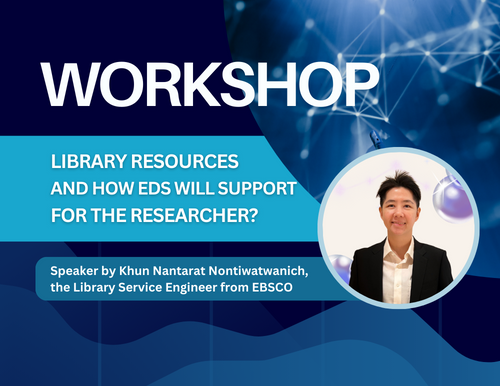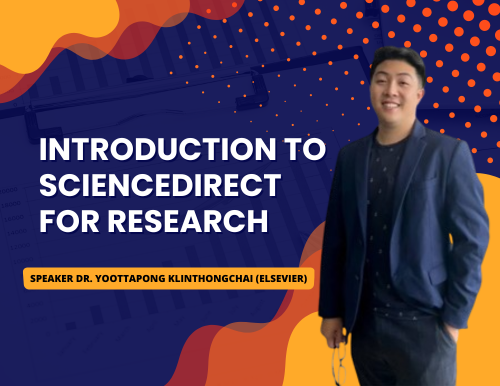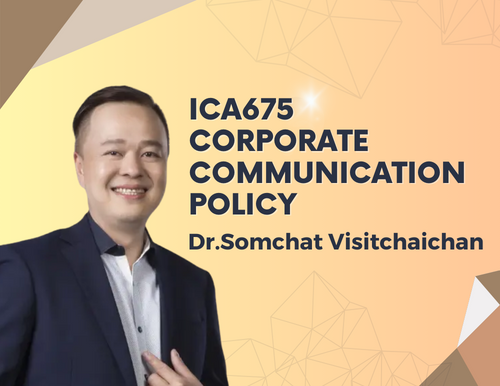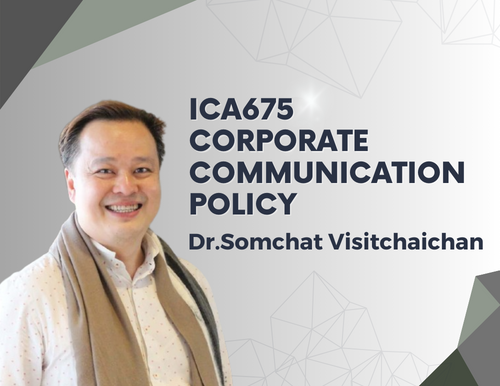The EBSCO database involves searching and accessing high-quality academic articles and research. The steps include targeted searching, reading, downloading, and saving desired articles in the system. Filters and advanced search functions help narrow down results to better match specific needs.
การพัฒนาทักษะทางความคิด กับความท้าทายของเด็กรุ่นใหม่ การเปิดใจที่จะรับฟังสิ่งรอบตัวให้มีความสุข การยอมรับในความเป็นจริงของชีวิต และการเปลี่ยนแปลงตัวเองเพื่อรับสิ่งใหม่ ๆ ที่กำลังจะเกิดขึ้น โดย คุณภริษา ยาคอปเซ่น
Monthly Update แอมแซ่บ ธุรกิจน้ำพริกผลไม้เจ้าแรกของโลก การนำผลไม้มาแปรรูปเป็นน้ำพริกเพิ่มมูลค่าด้วยนวัตกรรมและความคิดสร้างสรรค์ของคุณแอม เจ้าของผลิตภัณฑ์น้ำพริกผลไม้ “แอมแซ่บ” เลือกผลไม้พื้นถิ่นใกล้ตัวสร้างโอกาสธุรกิจบุกตลาด
This workshop covers advanced searching and the more sophisticated of databases in the EBSCOhost platform. Library Resources, What is EDS and how it works?, Techniques in “Feature & Setting”, How EDS support the researcher. By Nantarat Nontiwatwanich on January 20, 2024
This is a method for researching information related to the ScienceDirect database, which covers research in fields such as business management, accounting, computer science, scientific decision-making, economics and finance, engineering, psychology, and social sciences. on December 9, 2023
Media Culture and AI Technology Trends for Today's Creative Media Industry
Prof.Dr. Jong-Sir Oh
Dean, School of Media Communication Dongseo University, South Korea
on March 9, 2022
9.00 - 11.00 Hrs
Lecture ICA675 Corporate Communication Policy
By Dr.Somchat Visitchaichan
Lecture Date:
Sunday 16 February 2020
1.00 p.m. - 6.30 p.m.
There are 3 parts.
Lecture ICA675 Corporate Communication Policy
By Dr.Somchat Visitchaichan
Lecture Date:
Sunday 16 February 2020
1.00 p.m. - 6.30 p.m.
There are 3 parts.
Lecture ICA675 Corporate Communication Policy
By Dr.Somchat Visitchaichan
Lecture Date:
Sunday 16 February 2020
1.00 p.m. - 6.30 p.m.
There are 3 parts.
Lecture ICA675 Corporate Communication Policy
By Dr.Somchat Visitchaichan
Lecture Date:
Saturday 1 February 2020
9.00 a.m. - 12.00 p.m.
and 1.00 p.m. - 6.30 p.m.
There are 5 parts.







